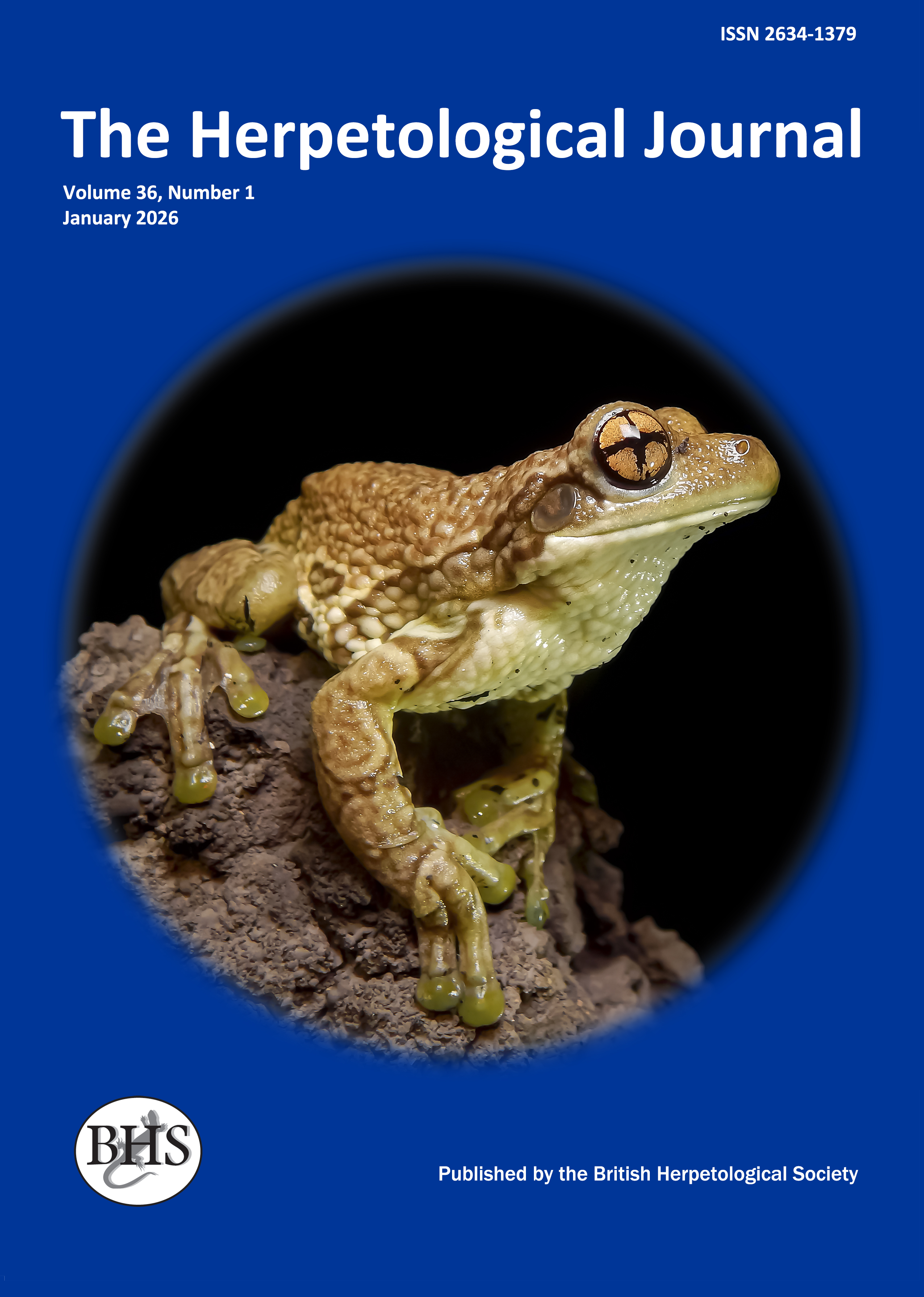
The Herpetological Journal
The Herpetological Journal is the Society's prestigious quarterly scientific journal. Articles are listed in Biological Abstracts, Current Awareness in Biological Sciences,Current Contents, Science Citation Index, and Zoological Record.
ISSN 0268-0130
2023 Impact Factor for the Herpetological Journal is 1.1, with the Journal sitting just below Quartile 2 in Zoology, at percentile 46.9
pdf 02. Annual changes in corticosterone and its response to handling, tagging and short-term captivity in Nyctibatrachus humayuni
773 downloads
Open Access
https://doi.org/10.33256/hj30.3.118125
pp. 118-125
Authors: Amruta M. Joshi, Edward J. Narayan & Narahari P. Gramapurohit
Abstract: Glucocorticoids (GCs) are primarily involved in mobilising energy reserves to various physiological processes including reproduction. During situations of stress, GCs also help in coping with stress by diverting energy away from processes such as growth and reproduction. Hence, studying annual and seasonal changes in GCs of wild populations can help in understanding their role in stress management and reproduction. The quantification of GCs in wild animals involves capturing, handling and restraining, which could be stressful. Moreover, different species may exhibit differential sensitivity to different stressors. Hence, determining species-specific sensitivities and responses to different stressors may help in developing effective conservation measures. In this context, we studied the annual and seasonal variations in corticosterone metabolites of the Bombay night frog, Nyctibatrachus humayuni. In addition, the effects of handling, marking and short-term captivity (24 h) on corticosterone metabolite levels of N. humayuni were determined. Our results show that urinary corticosterone metabolites (UCM) varied significantly annually and between the sexes; in males, the levels were highest during the breeding season, whilst in females, the levels were highest just before the breeding season. Interestingly, UCM levels of both the sexes were not affected by tagging with visual implant elastomer (VIE), and by short-term captivity, suggesting that these manipulations were not stressful in terms of corticosterone responses.
Keywords: Nyctibatrachus humayuni, glucocorticoids, sex-specificity, short-term captivity, tagging

